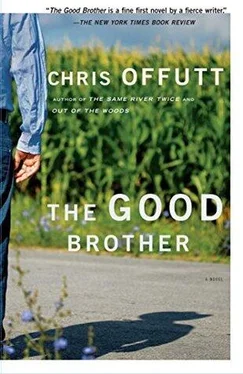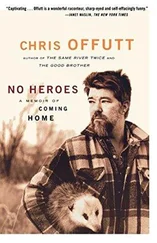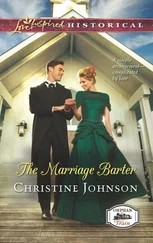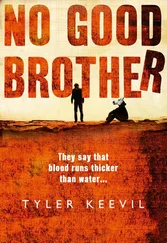“That sounds like how he’d think.”
A chimney swift flew in an arc away from the house. The air cooled. The night had softened, as if settling into itself until dawn.
“You know your daddy weren’t no coward.”
“No.”
“It took more spine to go under them hills than it ever did to stand up to a bully. They ain’t a miner who ain’t brave.”
“I know.”
“Boyd never understood that. He seen your daddy take mouth off other men and walk away cold. Boyd thought your daddy less for it. It hurt your daddy, but it hurt Boyd more.”
“It would.”
“You’re a cross between both.”
“I always thought I was more like Daddy.”
“No. Boyd’s temper is worse, but you got more anger in you. My fault I reckon.”
“No sense worrying about it now, Mom.”
“Maybe not. All depends on what use a body’s got for packing anger around.”
“Not too much, I don’t reckon.”
“At the right rime it can be handy as a pocket on a shirt.”
“It never was for Boyd.”
“I ain’t talking about him.”
Virgil suddenly knew what she meant. The steady creaking of the swing’s chains stopped. He stared into the night. It seemed to him as if his body were a shell that his mind had fled, and he was observing the proceedings from some distance. Two people sat on a porch. Their world was not vast.
“Marlon is a good boy,” his mother said, “but a blind man can see through him. A part of me always wished Sara had married Troy. Tonight was the first I ever was glad of her not. You understand why, don’t you.”
“I might,” Virgil had hopes one way, but the biggest part of him had fears the other. “I don’t know.”
“After Troy come up here the way he done, it would look pretty bad later if he was married in.”
The roof of Virgil’s mouth was dry and he was breathing through his mouth, trying to take deep drinks of the night. There was a certain point at the bottom of his lungs that needed oxygen. He stood, and when the swing bumped the back of his knees, he nearly fell. He began to tremble. He steadied himself against a porch strut and stepped off the porch. His mother was a dark lump in the shadow of the porch.
The moon was gone and clouds blocked the stars. He walked into the darkness. The road made a sharp climbing curve to his trailer at the end of the ridge, surrounded by trees. He sat on the bottom step. He was cold but the air was warm. His clothes wrapped his body, and skin was just a bag that stretched to hold different sizes of people. Inside they were the same bunch of bones.
Divorce Court sat beside Clay Creek in the widest hollow of the county, A network of gravel lanes held a hundred identical trailers that Rocksalt Community College rented to older students, many of them divorced. Virgil and the garbage crew had worked hard all morning. Gravel dust rose in their wake and settled over every surface like hoarfrost. Mist trailed above the creek that bordered the road.
Beyond Divorce Court, separated by a few trees and a rail fence, was the old drive-in movie lot. During its final summer of operation, the owner had showed X-rated movies. Cars jammed the lot. Everyone had come to see naked flesh twenty-five feet high gyrating among the dark hills. The first week, four cars ran off the road as they drove by. There were nine wrecks the following week, including two preachers and a nun from the new hospital. The movie got held over, and was known as the nun-wrecker. X-rated movies were eventually banned and the movie screen poked like a giant tombstone between the hills.
Taylor stopped working to dig through an immense pile of boxes. He found a pair of boots, a box of shotgun shells, and a metal water pipe. From a cardboard box, he pulled a gun cleaning kit.
“Brand new,” he said. “Never used.”
“Somebody must be moving on,” Rundell said.
“I believe so.”
Taylor held a plastic picture frame made to look like wood. The glass was broken. Behind it was a picture of a man and a woman. The photographer had used a special effect to nestle the couple’s faces inside a long-stemmed glass with a rose at its base. The man’s picture was slashed. Taylor studied the woman in the photograph.
“My opinion,” Taylor said, “some old boy just got his ass throwed out.”
“It’s our stuff now,” Dewey said.
“That ain’t all that’s up for taking.” Taylor used his fingers to comb his hair. He read the address off the side of the trailer. “Twelve Two-W. I’m getting me some strange.”
He carried what he’d culled from the garbage to the truck cab and slid it behind the seat. Virgil steered to an overhang of silver maples that turned their soft-bellied leaves to the breeze. The trees seemed dusted by snow. With the truck engine off, the silence was a weight pressing against Virgil. He’d felt it before, a heaviness as if he were compressed in deep water. The summer air produced a sodden force that cloaked sound and motion. You could yell and the moisture trapped your voice and held it tight.
The men carried their lunches to shade along the creek. Taylor didn’t eat, preferring his thermos of spiked coffee, cigarettes, and amphetamines.
“Say, Rundell,” Taylor said. “You been underly?”
“No, I feel fine.”
“Looks like you got the furniture disease.” Taylor tapped Run-dell’s big belly. “Your chest done fell into your drawers.”
Rundell knocked Taylor’s hand away and rubbed his gut. His flannel shirt was thin and faded as an old snake skin. Taylor laughed until the sound turned to a rasp. He cleared his lungs and spat a hocker the size of a pawpaw. He found his cigarette where he’d dropped it.
“A good cough is like running a snake down a drain, ain’t it,” he said. “Sure makes a cigarette taste right.”
He dipped his hands in the creek and scrubbed his fingers and face. He broke several twigs from a sassafras tree, peeled the bark, and rubbed the inner meat over his teeth and gums. He combed his hair without removing his hat.
“I’m heading on over to Twelve Two-W,” Taylor said. “That woman’s a-setting there waiting on me to come take a bite out of her.”
“Best tuck your shirt in,” Rundell said.
Taylor obeyed. He was very thin.
“By God, you look like a Christmas turkey,” Rundell said. “Plumb full of shit.”
“She loves me, boys. I can’t help it.”
The men watched Taylor saunter into the shimmering noon sun. Tendrils of willow swayed behind him like curtains. Virgil opened his dinner sack. Every morning he stopped by his mother’s house for a brown bag containing a sandwich, apple, and chips. She’d fixed him carry-lunches since he was six years old and walked to school with his brother and dog. Virgil went along with it now although he’d explained to her that it was no longer necessary to mark a V on the paper bag in crayon.
“What you got?” Dewey asked him.
“Pickle loaf and government cheese. Want some apple?”
Dewey ate his lunch from an old bread sack. It was the same food every day — leftover breakfast of sausage and biscuit. White grease on the sausage patty made it smooth as wax. Virgil passed the apple to Dewey, who dug his thumbs on either side of the stem, and split it down the middle. He gave the larger piece to Virgil. Rundell ate soupbeans and fatback from a thermos, with a chunk of corn-bread.
The muddy creek’s bank was strewn with plastic milk jugs and bread sacks.
“Creek’s got a bankful,” Rundell said.
“Don’t it,” Dewey said.
“You know that water runs into the ocean.”
“I don’t reckon.”
“Sure as Carter makes little liver pills.”
Читать дальше












